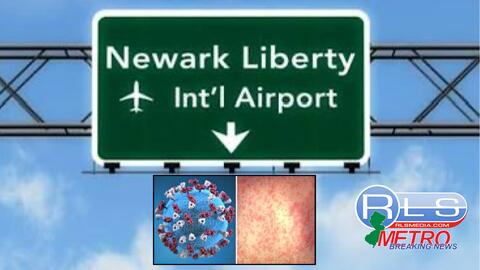New Jersey health officials are warning of a potential measles exposure at Newark Liberty International Airport after a non-resident with a confirmed case of the highly contagious virus passed through Terminal B earlier this week.
According to information released by the New Jersey Department of Health (NJDOH), the individual was at Terminal B on Monday, May 12, 2025, between 12:30 p.m. and 4:00 p.m., while infectious.

Officials say anyone who was in the terminal during that window may have been exposed and could develop symptoms as late as June 2, 2025.
The department is urging residents, especially parents, caregivers, and healthcare providers, to monitor for signs of measles and to ensure vaccinations are up to date. Symptoms typically begin with a high fever, cough, runny nose, and red, watery eyes, followed by a rash that starts on the face and spreads downward.
Measles can lead to serious health complications such as pneumonia, brain swelling (encephalitis), and pregnancy-related risks, including miscarriage or premature birth.
As of May 15, no secondary cases have been reported in New Jersey.
However, because the virus spreads easily through the air and can linger in a space for up to two hours after an infected person leaves, NJDOH is taking the alert seriously.
Individuals who believe they may have been exposed are advised to call a healthcare provider before visiting any medical facility to help prevent further spread. Providers can arrange for safe evaluation if necessary.
The NJDOH emphasized that people who have not been fully vaccinated or who have never had measles are at higher risk.
The MMR vaccine, administered in two doses, remains the most effective way to protect against measles, mumps, and rubella.

Those planning international travel should make sure they are fully vaccinated, and infants aged 6–11 months should receive one dose prior to travel, followed by the full series after their first birthday.
For more information or guidance, the NJDOH recommends contacting your healthcare provider or visiting the department’s official website.

